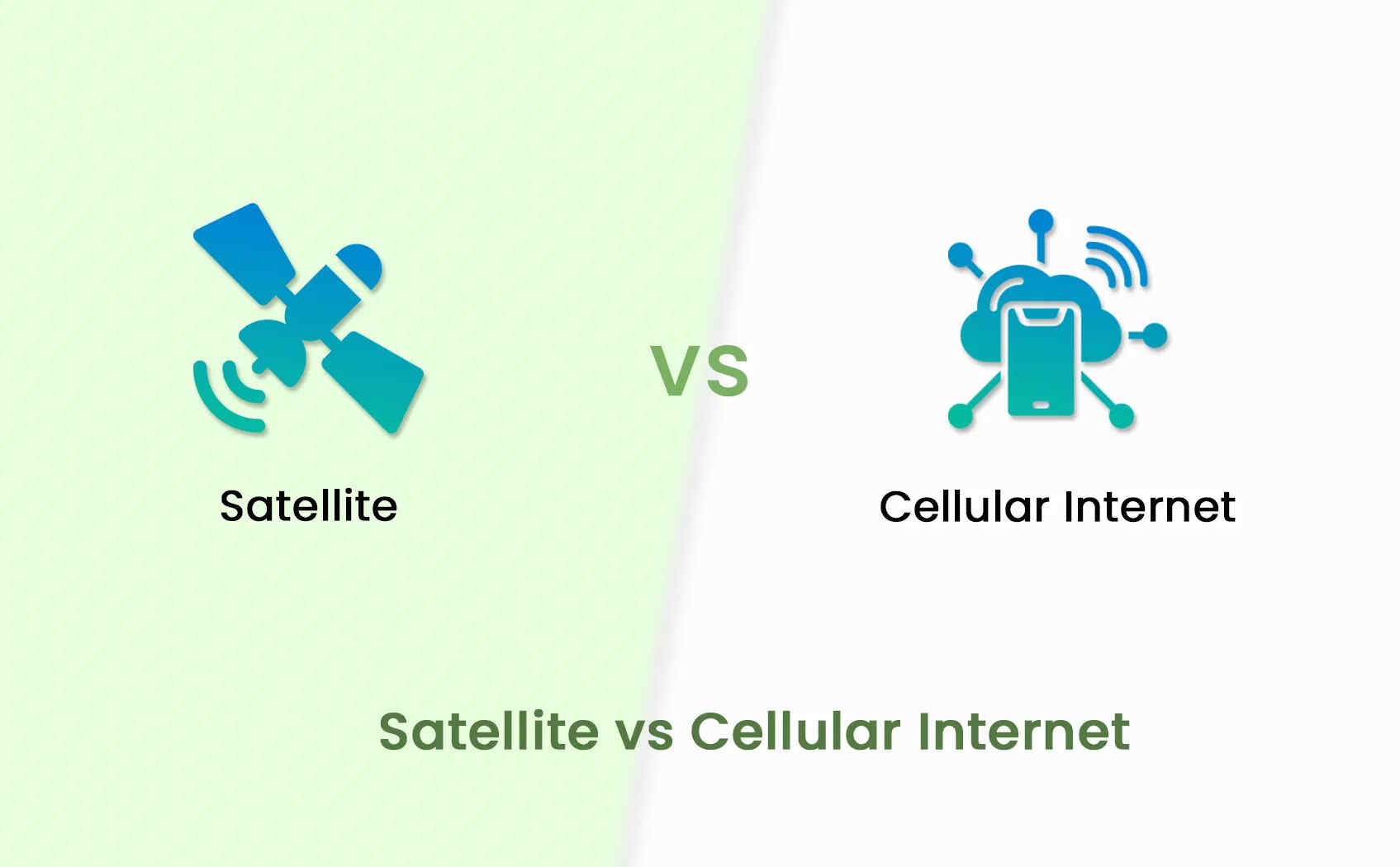


Compare satellite and cellular internet to find the best fit. Explore speed, reliability, and cost to choose the right option for home, RV, or travel.
If you live outside the reach of traditional cable or fiber, your internet options usually narrow down to satellite or cellular internet. Both can connect you to the online world in places where wired connections don’t exist, but the way they work — and the experience you get — is very different.
Understanding the differences in satellite vs cellular internet will save you from headaches like buffering videos, dropped calls, or expensive overage fees. Plus, with providers like Ubifi, cellular internet has become an even stronger competitor to satellite in rural and mobile environments.
Satellite internet transmits data between your location and an orbiting satellite in space. A dish at your home or RV sends and receives the signal, which is routed through the provider’s ground station and then to the wider internet.
Advantages: Works in remote areas with no cell towers or wired service.
Drawbacks: High latency, slower response times, and potential weather-related interruptions.
This makes satellite a lifeline for off-grid homes, but less ideal for activities like online gaming or video conferencing, where instant data transfer matters.
Cellular internet uses the same towers that power your mobile phone service. With 4G LTE and 5G networks, a SIM-enabled hotspot, router, or smartphone can deliver internet to multiple devices without the need for cables or a dish.
Advantages: Low latency, portable, quick to set up, and often faster than satellite.
Drawbacks: Dependent on tower coverage and signal strength.
Providers like Ubifi leverage major carrier networks, giving customers reliable service without the frustration of hard data caps or frequent slowdowns.
If responsiveness is important to your work or entertainment, cellular generally provides a smoother experience.
Satellite signals must travel thousands of miles to reach orbit, so they’re more susceptible to rain fade, heavy snow, or thick cloud cover.
Cellular internet is far less impacted by weather, though performance can dip in crowded areas where many users share the same tower. The key is having a strong, consistent signal — something that services like Ubifi help optimize for rural and mobile customers.
Satellite Internet:
Cellular Internet:
For most households and travelers, cellular is easier on both the wallet and the installation process.
Ubifi is a nationwide 4G LTE cellular internet service provider designed for homes, RVs, boats, and businesses outside traditional service zones.
What sets Ubifi apart:
For many, this means the flexibility to stay connected while traveling, combined with the speed and low latency that satellites often can’t match.
Q1: Is satellite internet good for work-from-home setups?
Satellites can work for basic tasks like email and document sharing, but high latency can cause lag during video calls or remote desktop work. Cellular internet from providers like Ubifi offers lower latency, making it better for professional use in most cases.
Q2: Can bad weather knock out satellite service completely?
Yes. Heavy rain, snow, or thick clouds can disrupt satellite signals, sometimes causing temporary outages. Cellular internet is generally less affected, although extreme weather may still reduce signal quality.
Q3: Which is more portable, satellite or cellular internet?
Cellular internet is far more portable since it only requires a small router or hotspot device. Satellite equipment is heavier, needs installation, and requires a clear view of the sky. Ubifi’s portable solution is ideal for RVers, boaters, and travelers.
